Who we are
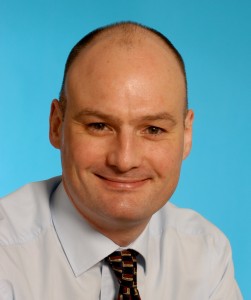 Chair – Bob Ward, Grantham Research Institute, London School of Economics
Chair – Bob Ward, Grantham Research Institute, London School of Economics
Bob is Policy and Communications Director at the Grantham Research Institute on Climate Change and the Environment and the ESRC Centre for Climate Change Economics and Policy at the London School of Economics and Political Science. Bob joined the School in November 2008 from Risk Management Solutions, the world’s leading provider of computer models for quantifying the risk of catastrophic events, where he was Director of Public Policy. He worked at the Royal Society, the UK national academy of science, for eight years until October 2006, where his responsibilities included leading the media relations team. He has also worked as a freelance science writer and as a science reporter for ‘The Daily Telegraph’. He has a first degree in geology and an unfinished PhD thesis on palaeopiezometry. Bob is a Fellow of the Royal Geographical Society, a Fellow of the Geological Society, a member of the executive committee of the Association of British Science Writers, a member of the American Geophysical Union, and a member of the American Association for the Advancement of Science.
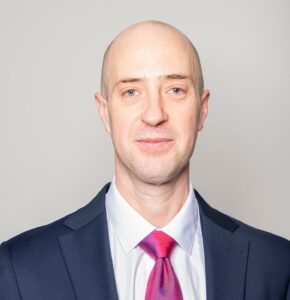 Deputy Chair – Sam Longman – Transport for London
Deputy Chair – Sam Longman – Transport for London
Sam is Head of Sustainability and Corporate Environment for Transport for London (TfL). He is Responsible for driving TfL’s corporate environmental performance, including transitioning TfL’s operations to net zero carbon, adapting to climate change, increasing green infrastructure and biodiversity, reducing waste, embedding triple-bottom-line sustainability and TfL’s green financing strategy. He led the development and publication of TfL’s first ever Sustainability Report and Corporate Environment Plan. He has worked for TfL for 9 years and during this time led the development, public consultation and secured the Mayoral decision to implement London’s world-leading Ultra Low Emission Zone. Prior to working at TfL he worked for the London Borough of Camden where he led the transport strategy team, managed capital investment and behaviour change programmes and developed and implemented land use planning policy.
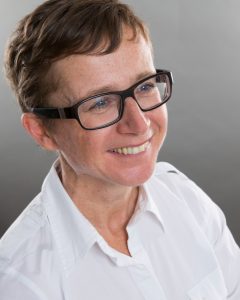 Partnership Manager – Jude Hassall
Partnership Manager – Jude Hassall
Jude has a background in environmental sustainability spanning over 20 years. She has worked for central government helping encourage greater environmental reporting from the UK’s leading businesses and also in the third sector specialising in renewable energy supply chains and land management for climate adaptation and biodiversity gains. Most recently Jude has helped support the Mayor Of London’s Sustainable Development Commission and helped design and deliver the ground breaking Future Neighbourhoods 2030 programme working with partners in London to help tackle some of London’s defining environmental challenges at a local neighbourhood level.
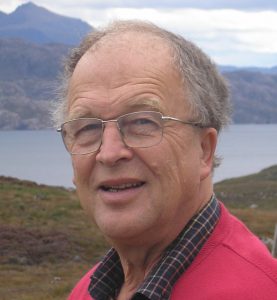
Tim Reeder – LCRP Advisor
Tim Reeder has joined LCRP as an advisor following a long and illustrious career in the Environment Agency, most recently as Regional Climate Change Programme Manager in the South East Region. He has been involved in climate change issues for more than fifteen years and contributed to the IPCC 4th assessment report and the UKCP09 projections report. He was a founder member of the LCCP, steering the initial setting up of the partnership.
Rachel Capon – Concrete Centre
Bernadette Middleton- Zurich Insurance
 Bernadette sits within the climate resilience team at ZRS and is a sustainability and climate professional with over 10 years of experience helping to design buildings and large scale infrastructure that is carbon efficient, climate resilient and future proofed. Bernadette has worked on high profile projects located across the UK, USA and Canada with a focus on developing corporate sustainability and climate strategies, KPIs and road maps and reporting mechanisms to over see their implementation.
Bernadette sits within the climate resilience team at ZRS and is a sustainability and climate professional with over 10 years of experience helping to design buildings and large scale infrastructure that is carbon efficient, climate resilient and future proofed. Bernadette has worked on high profile projects located across the UK, USA and Canada with a focus on developing corporate sustainability and climate strategies, KPIs and road maps and reporting mechanisms to over see their implementation.
Prof Michael Davies – University College London
Ka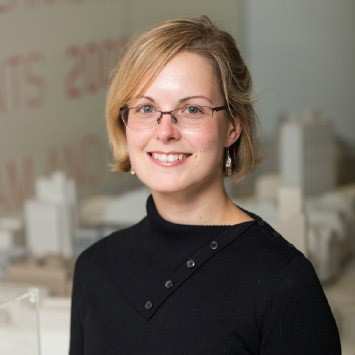 therine Drayson – Transport for London
therine Drayson – Transport for London
Katherine is a Strategy & Planning Manager in Transport for London’s Transport Strategy & Policy (TS&P) team, focusing on climate change adaptation and green infrastructure. Katherine studied Biological Sciences at Oxford before becoming an ecological consultant. Katherine then conducted a PhD on ecology in the English planning system before joining a think tank, working on urban green infrastructure policy. She then joined the Greater London Authority as a green infrastructure and adaptation policy & programmes officer, focusing on data and coordinating the development of the London Environment Strategy, before joining TfL.
For further information see related pages on TfL’s website.
 Sue Grimmond – University of Reading
Sue Grimmond – University of Reading
Sue Grimmond is Professor at Department of Meteorology and member of Walker Institute and SustBE. Her expertise is in Urban Meteorology and Climate: observation and modelling of surface-atmosphere exchanges; development and evaluation of urban land-surface models that can be used for investigating adaptation strategies; development and controls on the urban boundary layer. For further information see the University of Reading Partner page.
Francis Heil – Atkins

Francis Heil is a Chartered Engineer and Associate Director at AtkinsRéalis, one of the UK’s largest engineering & technical services consultancies. Francis has over 12 years’ experience in climate change adaptation and resilience across the UK and internationally. He’s managed and led climate resilience projects for cities, governments, infrastructure companies, the private sector, and multilateral development banks. He has been an expert advisor to the Mayor of London’s London Climate Resilience Review and he led the development of the City of Edinburgh’s climate change risk assessment. Francis was a lead contributor to the UK National Infrastructure Commission’s (NIC) Resilience Study, working alongside government departments, regulators, and infrastructure operators to inform government policy. He has a Masters in Engineering for Sustainable Development from the University of Cambridge, and was previously a lead for water and sanitation for Engineers Without Borders Australia.
Krupa Kumar – Space4Climate
Kai Liebetanz – UK Green Building Council
Laura Littleton – Environment Agency
Laura Littleton works at the Environment Agency as Thames Estuary 2100 Manager. Laura leads a multi-functional team who work with stakeholders and communities to deliver a strategy for adapting riversides to rising sea levels and increasing tidal flood risk in the Thames Estuary. During 10 years at the Environment Agency Laura has worked on various flood risk management and climate adaptation schemes within the Thames catchment. Laura is passionate about bringing diverse local voices into decision making and working collaboratively to create resilient communities and environments across London and the Thames Estuary.
Visit the Environment Agencies webpages here.
Tim Munday – City of London Corporation
Dr Anastasia Mylona – CIBSE
Anastasia is an architect and a chartered engineer who completed a PhD research on the environmental perfor
mance of buildings and systems. She is currently employed by CIBSE as their Head of Research, developing the Institution’s R&D agenda and supervising its funded research portfolio towards developing new knowledge for its members. Anastasia has over ten years’ experience in the area of environmental design of buildings and their services, and resilience to the impacts of climate change. She led CIBSE’s response to the Environment Audit Committee’s ‘Heatwaves – adapting to climate change’ inquiry and provided oral evidence regarding the ineffectiveness of the current policy framework to ensure good quality indoor environme
nts. Anastasia is the Chair of the Energy Resilience and the Build Environment (ERBE) Centre for Doctoral Training and the Chair of the Complex Built Environment Systems, Advisory Boards.
Melissa Painter – Victoria & Albert Museum
Shona Paterson – Brunel University
Shona is the Director for the Centre for Global Lives at Brunel University London. As a climate social scientist with a PhD in Coastal Resource Management, she has co-created, and contributed to, successful interdisciplinary projects in the Caribbean, Sub-Saharan Africa, the UK and across Europe as well as globally initiatives. She has worked across research scales from community-based SMEs, consultancy companies, academic institutes, large international non-governmental organisations, through to global research platforms.
Shona’s research aim is the co-production of interdisciplinary knowledge, in partnership with policy and societal stakeholders at multiple scales and across geographies, to identify options for pathways towards equitable sustainability. Her work not only bridges science and policy but also focusses on effective and fit-for-audience communication of knowledge and data to ensure increased open and impactful discourse around risk and societal change.
For more information see https://www.brunel.ac.uk/people/shona-paterson.
Resilience First
Visit the Resilience First website here.
Sarah Reay – ICAEW
Sarah Reay, Climate Change Executive, ICAEW
Sarah joined ICAEW in 2021 after she completed her masters in sustainable development. She leads on the Institute’s climate change work, which includes delivering events, thought leadership and know-how to members across the accountancy and finance profession, whilst also engaging with policymakers to drive more ambitious action on climate change.
Sarah is the secretary for ICAEW’s Sustainability Committee and sits on Chartered Accountants’ Worldwide Sustainability Taskforce
 Anusha Shah – Arcadis
Anusha Shah – Arcadis
Anusha Shah is Director of Resilient Cities at Arcadis. She is also Chair and Fellow of the Institution of Civil Engineers (ICE) and has a specialisation in Water and Environmental Engineering. With over 19 years of experience in managing and leading projects both in the UK and India, she has worked with consultants, contractors, clients, governments, NGOs and regulators within sectors such as Climate Change, Water & Wastewater, Flood Risk Management, Environment, Mining and Rail.
Anusha is also Co-Chair of ICE London and South-East Diversity & Inclusion Task Force. She was the youngest and first female Chair of the ICE – London Region in 2010, General Council Member and Trustee of the ICE for two consecutive terms, Non-Exec Director on the Thomas Telford Board (ICE’s business wing), Member of the ICE Executive Board, Member of the ICE Research & Development Panel and Member of ICE Qualifications Panel. She is currently a member of the ICE Fairness, Inclusion and Respect Group.
E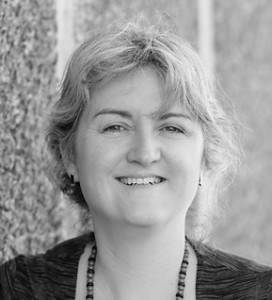 laine Toogood – Concrete Centre
laine Toogood – Concrete Centre
Elaine is a qualified architect with nearly 20 years’ experience of working in the construction industry, principally within private architectural practice in London. She is also a long serving member of the Lewisham Planning Authority Design Panel. Elaine currently works in the Sustainability, Architecture and Housing Team, at The Concrete Centre and provides decision-makers in the construction industry with advice and design guidance related to the use of concrete. As well as providing project advice, Elaine also contributes to Concrete Quarterly and authors technical guidance.


